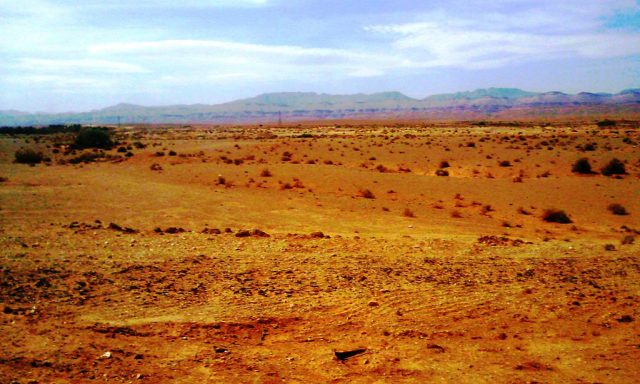
The beat
Police officers gone rogue
This BBC exposé offers a fascinating insight into a phenomenon extensively explored by Hollywood but rarely witnessed in real life: the inner workings of a police unit gone rogue, and the human destruction left behind. Tracing the operations of the Baltimore Police Department’s Gun Trace Task Force, the piece examines how members of this once highly-respected department—working on the streets of a city reeling from civil unrest and an opioid crisis—abused their power and eventually were arrested for racketeering, extortion and fraud.
While this time it’s Baltimore under the microscope, questions concerning police jurisdiction and use of force has been a hot topic in the US recently, where the Supreme Court ruled in favour of an Arizona police officer who shot a woman outside her home in Tucson in May 2010. But it’s also a hot topic in Australia.
Jaw-dropping operation
Also in Australia, a 4.5-metre great white shark—nicknamed ‘Noah’—interrupted a police operation in South Australia. Because great whites are listed as vulnerable under Australian law, officers had no choice but to abandon a random breath test operation when Noah swam between their police boat and the selected fishing boat.
Beginning of Rohingya boat surge?
Meanwhile, 6,000 kilometres northwest of South Australia, Malaysian authorities intercepted a boat off its northern island of Langkawi. The boat was carrying 56 Rohingya refugees. Following renewed violence in Myanmar, with estimates of 600,000 Rohingya fleeing the country, rights groups fear there could be another surge in boats trying to reach Southeast Asia.
CT scan
Needed: a plan of action
Somalia’s Office of Prime Minister is developing a new national action plan (NAP) to prevent and counter violent extremism. The NAP will prioritise de-radicalisation and dialogue, and emphasise the role of religious leaders and women in preventing extremism. Both al-Qaeda–affiliated terrorist group al-Shabaab and its rival, Islamic State, are active in Somalia.
‘A day in the life’ of a Beatle
The Associated Press interviewed two British members of IS at a Kurdish security centre. Both men are said to be part of the infamous IS cell dubbed ‘The Beatles’, which notoriously tortured and executed mainly Western captives. Their citizenship has been revoked reportedly, but Kurdish officials are urging Western states to take them back. Meanwhile, nine of 21 Iraqi nationals with alleged links to IS who had been arrested have been deported from Turkey. Baghdad itself sentenced seven Turkish women for IS membership; six received the death penalty.
Checkpoint
Heightened tensions on the Crimean peninsula
The Ukrainian Border Patrol announced that it would prevent all maritime traffic from entering or leaving the Crimean peninsula’s waters. The territory was annexed by Russia in 2014. The announcement comes two weeks after a Russian-flagged, Crimean-registered fishing vessel was detained in the Sea of Azov. The crew was charged with illegally crossing Ukrainian maritime borders.
March of return met with bloodshed
At least 16 Palestinians have been killed along the Israel–Gaza border by Israeli security forces. Palestinians were observing ‘Land Day’, an annual commemoration of the deaths of six Arab-Israelis killed during Israeli-sanctioned land confiscations in 1976. This year the protests were dubbed ‘the march of return’. Violence is expected to escalate as the anniversary of the inauguration of the Israeli state on 15 May 1948—which the Palestinians call Nakba (‘the catastrophe’)—approaches.
Casus belli on Western Sahara’s disputed border
Morocco has threatened to take control of UN-mandated buffer zones in Western Sahara. Moroccan Foreign Minister Nasser Bourita claimed that the separatist Polisario Front had moved members to the al Mahbes area, constituting a casus belli. The UN Mission for the Referendum in Western Sahara disputes the claim. The 27-year-old UN peacekeeping mission, which expires on 30 April, is expected to be extended by the UN Security Council this week.
First responder
Fiji responding to Cyclone Josie
Fiji is responding well to Tropical Cyclone Josie. Evacuation centres host more than 1,000 people and teams are cleaning up schools that have been closed since the disaster. The cyclone affected roads, water and electricity infrastructure, and some regions are still without power. High levels of flooding are making it difficult to assess the damage to electricity substations.
Gender perspective in natural disaster preparedness
A report by Melbourne University reveals that female small business owners plan less for natural disasters than do male owners. As a result, females rely more on information during a crisis, which leaves their dependents at a potential disadvantage. The report makes several recommendations to encourage women to take appropriate action and to use their networking capabilities to benefit the broader community.
Climate change in the Sahara
The Sahara desert has expanded by 10% in the last century due to climate change, according to a report by the University of Maryland. Changes in the desert’s boundaries can affect the amount of rain that falls in neighbouring countries such as Sudan, Libya, Chad and Mauritania. Professor Sumant Nigam says the desert expansion is a slowly unfolding natural disaster that doesn’t attract the same attention as other natural disasters such as floods and earthquakes. Drought already disproportionally affects girls in Mali because erratic weather patterns force them to accept riskier work conditions.

